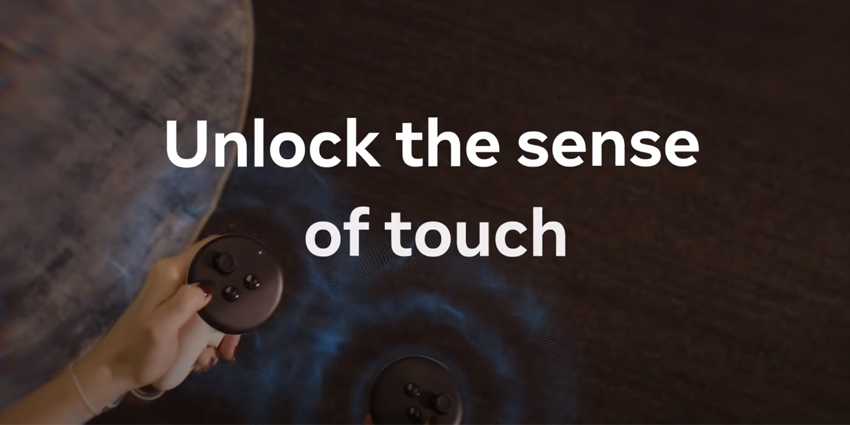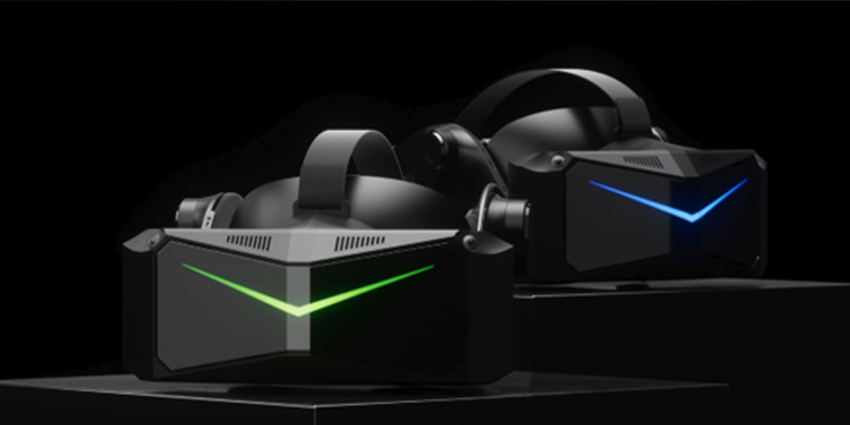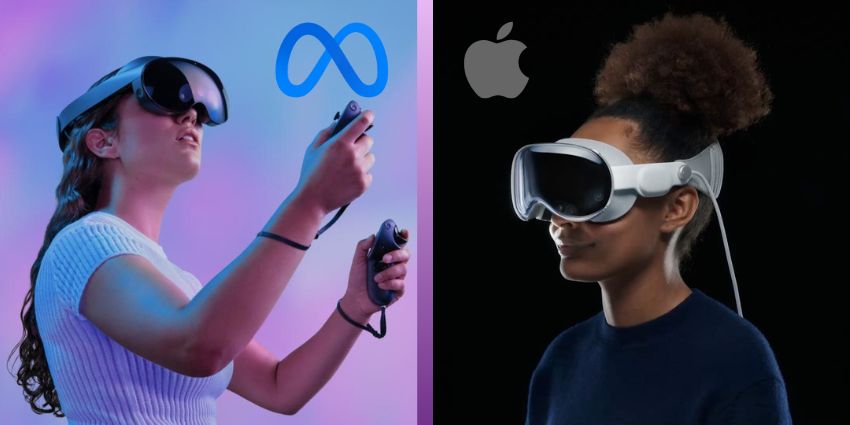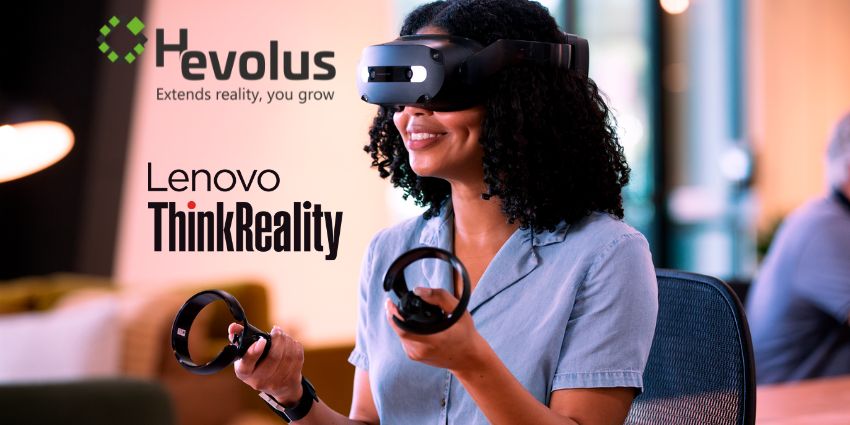Meta is keen to have its hands in almost every emerging technology pie. Namely, within the XR space, the firm works on many related immersive technologies to boost Meta’s hardware and software offerings, from AI to avatars.
Another technology space, Meta, is keen to crack the haptics market. It is a space early in its development yet key in providing advanced levels of immersion, input, and feedback during enterprise operations such as training sessions.
Haptic feedback comes in many hardware forms, such as gloves or controllers. Haptic systems provide users with pressure-based feedback when interacting with an immersive environment around them. For example, during a training session, if a user interacts with a piece of machinery or material, haptic feedback can relay a virtual asset’s shape, texture, weight, and feedback.
Last week, Meta, following a period of inactivity in its development of haptic solutions – which previously focused on the creation of a haptic glove – released Haptics Studio and Haptics SDK, two software solutions that allow developers to add advanced haptic considerations into their Quest line up.
What is Haptics Studio by Meta?
Haptics Studio and SDK leverage Unity and Unreal RT3D engines for creating AR/VR/MR content; Meta’s tools allow developers to integrate haptic experiences into Quest applications. Notably, the studio is future-proofed for upcoming Quest devices and legacy ones.
Meta created its haptic tools to enable a streamlined developer workflow that helps with Quest device runtime and compatibility. The Meta Haptics Studio is an application for Mac and Windows XR developers without requiring a developer to write or compile code.
Many XR-based SDKs are working to drive accessibility in the space via low-code solutions – especially in enterprises. XR content development is expensive, so easy and streamlined services like Haptics Studio are essential for integrating XR business solutions.
Moreover, XR is still emerging, and many are trying to understand the technology. So, an accessible route to developing related XR technologies is also crucial in providing a framework for future adoption and understanding.
Are Haptic Gloves Making a Comeback?
Although the haptic glove market has a lot of potential and there is growing investment in XR, the development of haptic gloves is currently not very active. While companies like HaptX and Senseglove are making strides in the field, there is less focus on haptics.
On top of this, companies like Honda, Scania, and Volkswagen are experimenting with haptic gloves in the workplace as enterprise end-users, so the emerging benefits are becoming apparent. Still, the technology has not caught up with the rest of the XR field.
Big firms like Meta seemingly paused research into the space, up until the release of Haptics Studio, as the firm works towards its other XR investments like MR headset and smartglasses – although Meta will most likely allow its technology from haptics to smartglasses to MR headset to exist alongside each other with innovations from each driving Meta’s portfolio.
But it seems like Haptic software and hardware is making a comeback at the perfect time as the industrial Metaverse raises and promises to bring immersive training to a host of end-users, potentially driving adoption towards haptics.
Recently, Fluid Reality brought new eyes to the haptics market with an incredibly innovative solution that solves many of the pain points that come with XR hardware, especially size and weight.
In October, Fluid Reality debuted a prototype haptic glove solution; the firm’s research introduced various competitive features to haptic glove hardware solutions that could benefit healthcare, automation, and training use cases.
The new haptic glove prototype offers untethered usability, meaning it doesn’t need to be connected to an additional computing device, increasing portability and ease of use.
Interestingly, Fluid Reality noted in a research paper that while there are many innovations in immersive audio and visuals, interest in haptic immersion remains low. Fluid Reality is a subsidiary of Future Interfaces Group at Carnegie Mellon University and is looking to leverage its findings to provide enterprise and consumer XR solutions.
With its findings, Fluid Reality is painting a picture of the future of haptic feedback – and with renewed interest from Meta, the space may reemerge in 2024.







